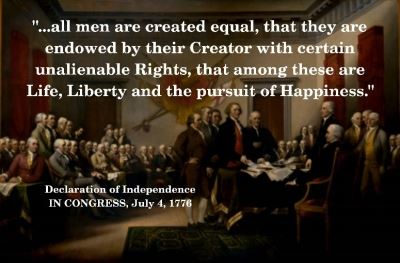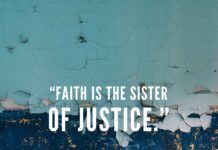In legal terms, “emotional distress” or “mental anguish” has four identifiable aspects for a jury to consider:
1. grief and sorrow
2. worry, anxiety, and fear
3. loss of enjoyment of life
4. loss of self-identify or an inability to obtain self-satisfaction
Many people, many jurors in fact, will ask rhetorically: Are these really damages we should compensate for in a personal injury case? This same juror will recognize the pain that accompanies shattering a bone or tearing a piece of flesh, but may stop short when it comes to another’s mental agony, suffering, and loss of enjoyment of life. Why?
If a victim were only entitled to compensation for their medical bills and lost wages we would not need a jury system. Any eighth grader could do the math. America’s jury system is about the intangibles. In this country, we value the intangibles – that is what separates us from a third world nation.
We have a civil justice system and a jury tasked with measuring the intangible harms because only a jury can do it. The greatest calculator in the world cannot feel. Machines do not have hopes, dreams, and families. No machine could ever understand another’s despair or loss of enjoyment of life. Machines cannot suffer. Only people do. So only people can actually value it.
This is the sacred province of the jury under the 7th Amendment. The Founding Fathers pronounced in the Declaration of Independence that all men are created equal, and that “they are endowed by their Creator with certain unalienable rights; that among them are life liberty and the pursuit of happiness.” These were not empty and hollow phrases. They were fundamental guarantees enshrined in our system of justice. Armies have been maintained and blood has been shed to ensure these inalienable rights remain self-evident.

The law says, in no uncertain terms, that it is wrong for someone, through their carelessness, to prematurely cast emotional trauma upon another when it could have been prevented. Our jury system recognizes emotional scars not because of what has been lost – but because of what the victim has been left to live with.
Mental anguish is like an open wound. Our emotional scars may calcify but they are always part of us. We can all recognize the pain. The pain of the parent who has lost a child. Of the gifted athlete who is left crippled or amputated. The bright young student whose aspirations are cut short by brain damage that impairs intelligence and the ability to function. The veteran who honorably served his country for years only to return with a permanent post-traumatic injury that no one quite understands. A disfigured mother who fears she is ugly in the eyes of her husband, her lover, her companion and confidant, her best friend of twenty years. The child who did nothing wrong who must live the rest of her days from the confines of a wheelchair. The proud and independent man who can no longer support his family, who feels like a burden when he has to ask for help. The older business man who loved to play golf on the weekends who can only listen agonizingly as his friends distance themselves to discuss their last round. The elderly woman, whose last meaningful years are spent hobbling in mortal fear after attempting to cross the street; the golden years she worked all her life to enjoy gone in a brief moment.
A devastating injury can be visited upon anyone. For a person who has been unfairly robbed of the pleasures they once knew, there are constant reminders. Pleasant memories of good and happy times are of no comfort. Happy memories of the past only remind us of our past selves, making them especially painful because we can never know them again.
Resentment towards life is only intensified when we know everything was wholly preventable, caused by the carelessness of another, no fault of our own doing, that we did nothing to deserve this. When one knows that if people had behaved differently that none of this would have happened, there is a lingering kind of wrongfulness that simply does not resolve itself with time. It does not make acceptance easy. For some, the bitterness never goes away.
The fanciest calculator in the universe could never compute the value of a dream deferred, of losing one’s health and mobility, of daily constant pain, lost freedoms, and lost relationships. When the windows of opportunity are closed to us, when we no longer have the mobility we once knew, when we can no longer provide for our family, when life’s simple pleasures are replaced by constant pain, it robs us of a sense of dignity, confidence, and self-worth. We exist, but are tortured by knowing we will never live as fully as before.
Members of the jury undertake this solemn duty of measuring God’s glorious gift to us in the form of a human body and the mobility it provides. Human beings are unique as the only creatures on this planet with the capacity to love, to sacrifice, to hope, to dream, and to exercise freewill. With freewill comes the sacred responsibility of holding one another accountable when we choose to be careless, reckless or irresponsible. Of all the blessing bestowed upon the human mind, we are born with the innate ability to conceptualize justice and to rectify the pain of injustice. But rather than an “eye for an eye” making the whole world blind, America’s civil justice system seeks to wholly compensate victims of negligence for that which they have been left to live with.

The human spirit is nothing less than the sum total of our mental and physical health. All the great religious institutions around the world – Christianity, Buddhism, Judaism, Islam, Hinduism – they each share the belief that our mind is inextricably interwoven with our body: mind, body, and soul. Afflicting one inevitably impairs the others. The mind and the body are more than married, for they can never be divorced and are always most intimately united; when one suffers, so does the other. By experience, we all have come to know this is true. When we are sick, hurt, or in pain, we are not in the best of spirits.
“Broken spirits are more difficult to heal than broken bones.
No one would voluntarily subject themselves or their family to it.”
When we discuss mental anguish and emotional distress, we are talking of the human spirit. That candle that lights the human spirit, that light that makes the day a little bit brighter – when the fuel that fires us from within is diminished – that is the most wrenching loss. That is the gravity of the loss. The defendant’s carelessness may not have extinguished the flame, but it has made the room darker. The qualities of the person whose cup was filled and brimming with joy, comfort, and satisfaction, no longer spills over into the cups of all those around him.
Broken spirits are more difficult to heal than broken bones. No one would voluntarily subject themselves or their family to it. No one would trade physical and mental torture for a defendant’s money. No, it is placed upon them without invitation, causing injuries that will stay longer than desired, and will alter life forever.
Those who are responsible are often quick to assure us that “time heals all wounds.” But those who give lip service to this hollow condolence have ignored the loneliness of the pain and isolation. Only those who caused this type of mental anguish can say it is a minor thing of modest value. It may be that they have never experienced the torture of knowing life will never be as full as it was before. Only those who refuse to understand what it is like to walk in the moccasins of another would suggest that this type of mental torment is cheap.
Our lives are not cheap. Our health, our relationships, our family, and our freedom to choose our own path are the most valuable things we own. These are the inalienable rights, the intangibles, endowed upon us by our creator and the foundation upon which American justice was built.
When a man or woman comes before a jury of twelve with their pride ravaged, their self-esteem maimed, they were not just physically hurt. They hurt all over. They have been left with the loneliness of grief and injustice cast upon them by a needless and senseless event. In our final appraisal, if we say as a community that these things are not valuable, we will have robbed ourselves of fundamental rights which should be self-evident, and in so doing we will have rejected our God-given ability to appreciate the true value within ourselves and in others.
















